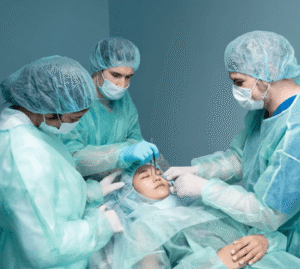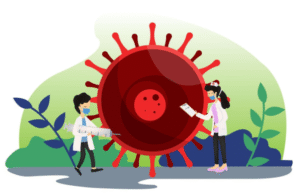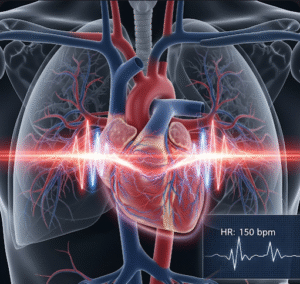Overview
Parasitic infections occur when parasites—organisms that live on or in a host—infect the human body. These infections range from mild to life-threatening and are common in areas with poor sanitation, contaminated water, or tropical climates. Parasites can be protozoa, helminths (worms), or ectoparasites (like lice or mites). Treatment depends on the type of parasite and the severity of the infection, and South Korea provides world-class diagnosis and treatment for various parasitic diseases.
What is Parasitic Infection?
A parasitic infection is caused by parasites that invade the body, reproduce, and interfere with normal functions. These organisms rely on their host (human body) for survival and nutrients. Parasites may enter the body through contaminated food or water, insect bites, or direct skin contact. They can affect multiple organ systems, including the gastrointestinal tract, lungs, liver, skin, and blood.
Types of parasites include:
- Protozoa: Single-celled organisms (e.g., Giardia, Plasmodium which causes malaria)
- Helminths: Multicellular worms (e.g., tapeworms, roundworms)
- Ectoparasites: Parasites that live on the body (e.g., lice, scabies)
Symptoms
Symptoms of parasitic infections vary depending on the type and location of the parasite. Common symptoms include:
- Diarrhea or gastrointestinal distress
- Abdominal pain and bloating
- Fatigue and weakness
- Skin rashes or itching
- Weight loss
- Fever or chills (especially in malaria)
- Muscle or joint pain
- Persistent cough (in cases of lung involvement)
- Anemia
In some cases, especially early on, there may be no symptoms at all.
Causes
Parasitic infections are typically caused by exposure to:
- Contaminated food or water
- Poor sanitation or hygiene
- Insect bites (e.g., mosquitoes carrying malaria or dengue)
- Walking barefoot on infected soil (hookworms)
- Close contact with infected people or animals
- Travel to or living in tropical or developing countries
Poor waste management, overcrowded living conditions, and lack of clean drinking water increase the risk significantly.
Risk Factors
Several factors raise the likelihood of contracting a parasitic infection:
- Living in or traveling to tropical regions
- Consuming raw or undercooked meat or fish
- Exposure to contaminated water sources
- Poor sanitation and hygiene
- Weakened immune system
- Contact with infected animals or insects
- Children and elderly individuals are more vulnerable
Complications
If not diagnosed and treated promptly, parasitic infections can lead to serious complications:
- Chronic gastrointestinal disorders
- Malnutrition and dehydration
- Organ damage (liver, lungs, heart)
- Severe anemia
- Neurological symptoms (e.g., seizures from neurocysticercosis)
- Developmental delays in children
- Death, particularly from untreated malaria or severe helminth infections
Prevention
Many parasitic infections can be prevented with proper hygiene, awareness, and precautions:
- Drink only clean, treated, or bottled water
- Wash hands thoroughly before meals and after using the toilet
- Avoid consuming raw or undercooked meats or seafood
- Use insect repellent and mosquito nets in high-risk areas
- Wear shoes outdoors, especially in rural or tropical regions
- Practice good food safety: Wash fruits and vegetables before eating
- Deworming programs in schools and communities
- Get vaccinations or preventive medications when traveling to high-risk countries
Treatment Options in Korea
South Korea is highly advanced in diagnosing and treating parasitic infections. The healthcare system emphasizes early detection, precise lab testing, and modern pharmaceutical therapy.
1. Diagnostic Methods
- Stool tests, blood smears, and PCR tests for genetic identification
- Imaging tests like CT scans and MRIs for tissue or organ involvement
- Serological testing (antibody/antigen detection)
2. Medication Treatment
- Antiparasitic drugs (e.g., albendazole, mebendazole, ivermectin)
- Antimalarial medications (e.g., artemisinin, chloroquine)
- Antibiotics or antifungals if secondary infections occur
- Iron supplements or nutritional therapy for anemic patients
3. Hospital Care
In severe or systemic cases, patients may require:
- Intravenous fluids
- Surgical removal of large parasites (e.g., cysts, hydatid disease)
- Isolation or quarantine for highly contagious infections
- Comprehensive recovery support
4. Korean Public Health Role
The Korea Centers for Disease Control and Prevention (KCDC) closely monitors parasitic outbreaks and implements national programs for education, water sanitation, and travel advisories.
5. Medical Tourism for Parasitic Disease
South Korea offers international patients specialized treatment packages at facilities like Severance Hospital, Samsung Medical Center, and Korea University Medical Center, including multilingual staff, fast diagnosis, and personalized care.













